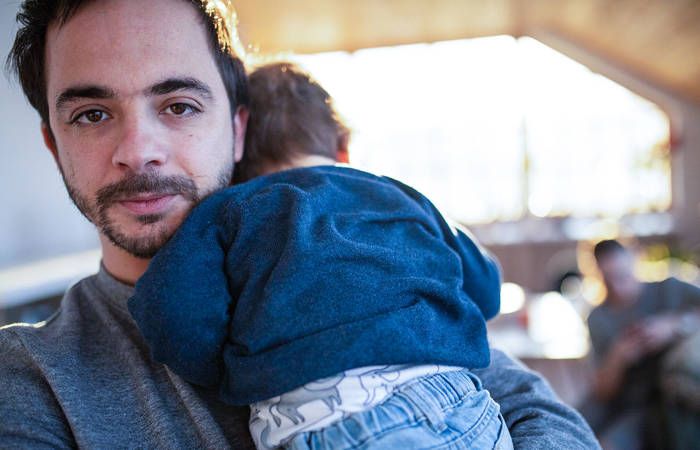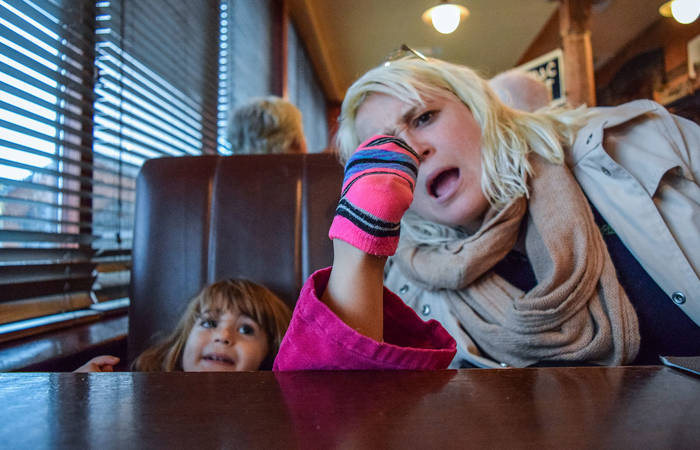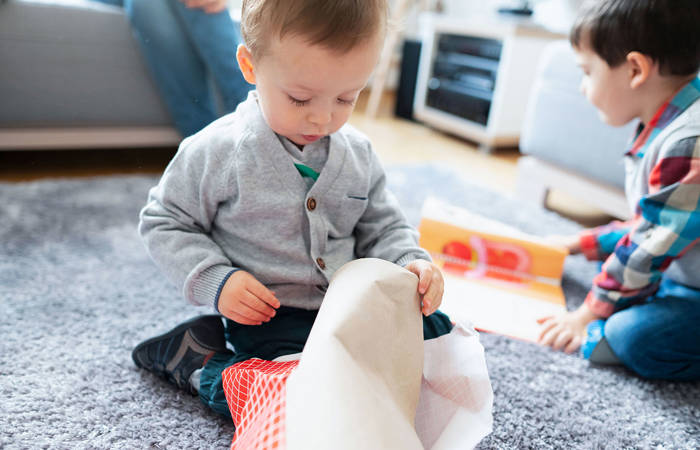Like what you see?
Sign up to receive more free parenting advice.
Thank you for subscribing to our newsletter!
Child Development

Credit: iStock.com/amriphoto
Handing control over to your children for an entire day, or even a few hours might feel like an uncomfortable scenario to a lot of parents, but it can be a fun way to give children a sense of belonging and can help you learn more about them.
Made popular by Yes Day, a 2021 Netflix movie starring Jennifer Garner, a Yes Day (or even a Yes Hour for younger children) is a good way to help children test their limits and capabilities, says University of the Sunshine Coast Senior Lecturer in Psychology Doctor Rachael Sharman.
“Something like a ‘Yes Day’ can also help broaden horizons and might even give parents an insight into their own anxieties and how they are holding them and their child back,” she says.
Establish Yes Day boundaries up front
In the movie, which is based on a book by author Amy Krouse Rosenthal and illustrator Tom Lichtenheld the family’s rule free day results in a series of chaotic events including enough ice cream to make everyone sick, a water-logged car and house, a stint in jail for the parents and a trip to hospital- not ideal for any family.
Which is why University of Queensland Associate Professor Alina Morawska who is the Deputy Director (Research) at the Parenting and Family Support Centre, says a Yes Day can work, if boundaries are established up front.
“In some ways a Yes Day can be a fun thing to do, as long as there are appropriate parameters in place,” she says.
“As a parent you need to think very carefully about the sort of things you wouldn’t say ‘yes’ to, so the entire family knows what can and can’t be done upfront.
“It depends on the family but some of the parameters you might introduce might include financial or expense parameters or you might want to think about setting boundaries around risk taking or activities that are inappropriate.
“It is also important to make sure you have a rule upfront around the fact that a parent will step in and say ‘no’ if things become risky or dangerous,” she says.
Setting boundaries upfront mean the entire family can relax in the knowledge that no matter what happens throughout the day, the adult will still make sure the whole family will stay safe.
“You can think of it as risk management,” Associate Professor Morawska says.
Consider how you say 'No'
While a Yes Day can be a fun family activity, Associate Professor Morawska says it is important to consider how you generally react and respond to your children and if you say ‘no’ as routine, without considering alternatives.
“I’m not sure a Yes Day is in and of itself a necessary part of parenting, but I do think it is always really important for parents to consider how they’re responding to their children’s requests,” she says.
“It is very easy as a parent to fall into the trap of saying ‘no, no, no,’ or ‘later, later, later,” and then that’s the kind of message that our children are consistently hearing so I think as a parent is it’s very important to reflect on the opportunities you would normally say ‘no’ to, that you might actually be able to say, ‘yes’ to.”
Something like a ‘Yes Day’ can also help broaden horizons and might even give parents an insight into their own anxieties and how they are holding them and their child back.Dr Rachael Sharman
Stay up to date with the latest news and articles from First Five Years
Thank you for subscribing to our newsletter!
Helping your child feel in control
A Yes Day is really just a way to give your children the opportunity to feel in control, but it might not be necessary, if your children already feel a level of control in their everyday lives.
“There are lots of opportunities in a day for parents to help their children feel in control,” Associate Professor Morawska says.
“It depends on the child’s age but offering children choices when they’re very small can increase their sense of confidence.
“Small choices that are controllable and that the parent is happy for the child to make, might for example include ‘would you like the blue shirt or the red shirt?’ Or ‘would you like this cereal or that cereal?’.
“This not only reduces the risk the child will say no, or refuse to do something, it also encourages confidence in their own ability to make decisions and take control of a situation.”
As your child gets older, you can give them more opportunities to make choices throughout their days.
Something else parents could consider is how they phrase things they ask of their children or the answers they give to some requests.
“If you reflect on the types of situations you encounter with your children and the opportunities you’re providing to your children, you might find that you can phrase your instructions in a way that discourages the use of the word ‘no’ and you can better respond to your children and give them choices and options,” she says.
“Incorporating this into your daily life on a routine basis is probably more important than having a one-off Yes Day.”
Tips and Tricks for parents for a stress-free Yes Day
- Set a budget upfront so everyone understands the level of requests that they can make.
- Set a rule that one of the adults in the family can say ‘no’ to keep everyone safe.
- Talk about other boundaries upfront and agree on them as a family.
- Make Yes Day a surprise. Tell your children on the day, that they get to make the rules.
- Yes Day doesn’t include activities beyond the allocated day.
- Yes Day is a special occasion and not a regular occurrence.
Ideas for Yes Day
- Desert for breakfast
- Pyjamas all day.
- Water fights.
- Visit your favourite restaurant or a theme park.
- Leave the car at home and ride your bikes all day.
- Camp out in the backyard.
- Floor picnics.
- Wear dress ups all day (even outside the house).
- No housework, jobs or work all day.
- Race the adults around the park, or have a swimming race.
- Movie marathon






